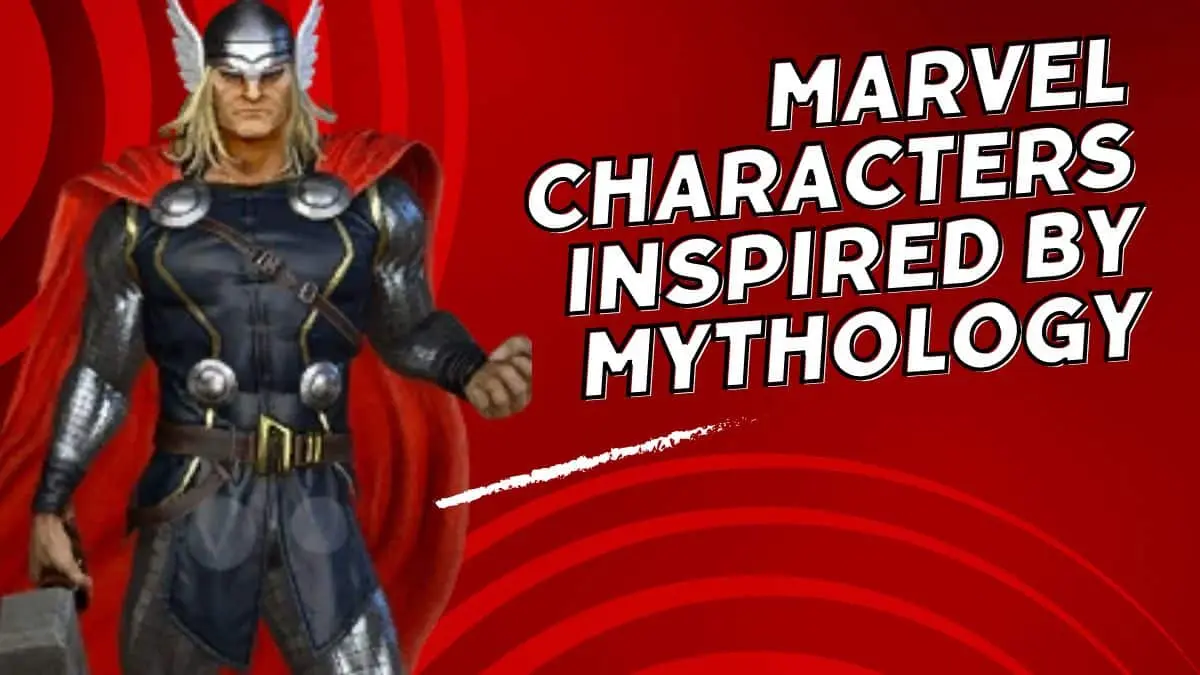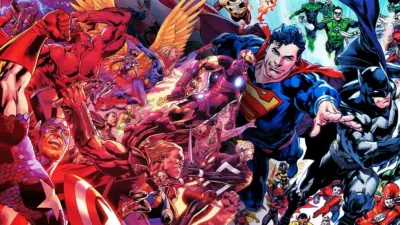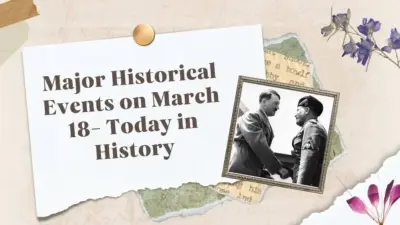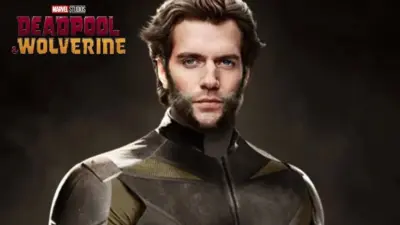Marvel Comics has masterfully integrated characters inspired by mythology into its universe, blending ancient legends with the modern superhero narrative. These characters, ranging from gods and monsters to heroes reborn, draw from Norse, Greek, Japanese, and Egyptian mythologies. They bring timeless tales to life, adding depth and complexity to Marvel’s storytelling canvas. Through these Marvel Characters Inspired by Mythology, Marvel explores themes of power, morality, and the human condition, connecting ancient myths with contemporary audiences.
Marvel Characters Inspired by Mythology
Hercules

In the pantheon of marvel Comics, the figure known as Hercules stands tall as a testament to the valor and strength that echo the heroic feats of ancient Greece. This incarnation of the celebrated demigod is imbued with a charm and vivacity that mirrors the legendary character’s larger-than-life exploits documented in myth. Renowned for his divine strength and durability, Hercules’s adventures in Marvel Comics span the mundane to the cosmic.
This illustrates his capacity to face down titanic threats while also navigating the complexities of camaraderie and rivalry among gods and mortals alike. His jovial nature and penchant for revelry do not overshadow his unwavering bravery and a strong sense of justice, making him a beloved figure among the Avengers and a champion of humanity. His narratives often intertwine with those of other mythological characters, offering a rich exploration of ancient myths through the lens of superhero storytelling.
Thor

The Norse god of thunder from Asgard, Thor, is a cornerstone of Marvel’s universe, embodying the valor and tumultuous nature of his mythological roots. With Mjolnir in hand, Thor’s abilities extend beyond the awe-inspiring control of thunder and lightning; he possesses superhuman strength, durability, and the power of flight, making him one of the mightiest warriors in the realm of gods and men.
His tales are a blend of ancient Norse myths and modern-day superhero sagas, where the valor of Asgard is often pitted against the malevolence of its enemies. Thor’s commitment to Earth’s protection as a member of the Avengers underscores his connection to humanity, juxtaposing his godly heritage with his role as a defender of the mortal world. His struggles with his identity, the responsibilities of godhood, and his tumultuous relationships with family members, especially Loki, add layers to his character, enriching the mythological tapestry of the Marvel Universe.
Zeus

As the supreme ruler of the Olympian gods in Marvel Comics, Zeus embodies the majestic and authoritative presence one would expect from the paramount deity of Greek mythology. His dominion over the skies and command over lightning are visually spectacular, reinforcing his status as a powerful protector and leader. Zeus’s portrayal in Marvel narratives often highlights his diplomatic and martial prowess, navigating the delicate balance of power among gods, titans, and cosmic entities.
Despite his immense power, Zeus’s stories also delve into his personal imperfections, such as his tempestuous relationships and the consequences of his decisions on both divine and mortal realms. This portrayal adds a rich depth to his character, exploring the burdens of leadership and the complexities of divine politics, making Zeus a central figure in Marvel’s mythologically inspired stories.
Ares
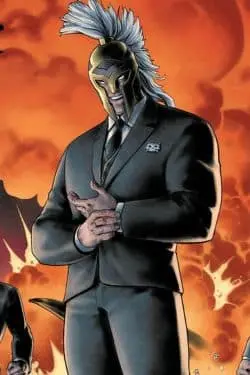
The Olympian god of war, Ares, undergoes a fascinating transformation in the pages of Marvel Comics from a traditional villain to a nuanced antihero. His martial prowess is unmatched, embodying the ruthlessness and ferocity of warfare. However, Marvel’s Ares is not just a one-dimensional harbinger of battle; he is a character caught in the turmoil of his own existence, torn between his natural inclination towards conflict and a burgeoning desire for honor and redemption.
His journey is marked by moments of profound introspection, challenging the notion of what it means to be a god of war in a universe where the lines between heroism and villainy are often blurred. Ares’s relationships, particularly with his son Phobos and his comrades among the Avengers and the Olympian gods, further explore themes of fatherhood, loyalty, and the quest for a meaningful existence beyond the battlefield.
Athena
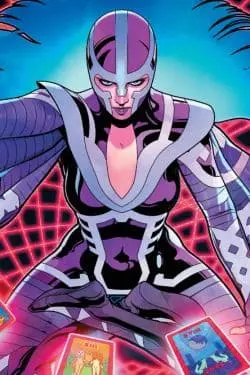
Marvel’s Athena, goddess of wisdom and warfare, seamlessly blends the strategic acumen and combat expertise that her mythological counterpart is known for. As a deity who prizes intelligence over brute force, her interventions in the Marvel Universe are often pivotal, shaping events with foresight and cunning.
Athena’s role as a mentor to heroes and a guiding light to the Olympians showcases her dedication to the preservation of knowledge and the advancement of justice. Her narratives explore the duality of her domain, offering insights into the nature of wisdom as both a tool for peace and a weapon in war. Athena’s character underscores the importance of balance, demonstrating how intellect and might must coexist to navigate the complex landscape of divine and mortal affairs.
Minotaur
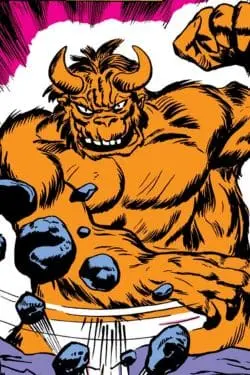
The Minotaur, a being of Greek mythology reborn in the Marvel Universe, encapsulates the primal fear and monstrous rage associated with his labyrinthine origins. This creature, with the body of a man and the head of a bull, is not merely a beast to be slain; he represents the dark side of human nature, an amalgamation of man’s intelligence and animalistic impulses.
Marvel’s Minotaur has faced off against numerous heroes, challenging them not only with his physical prowess but also by forcing them to confront the monstrous within and the ethical dilemmas that come with battling such a creature. His appearances serve as a reminder of the timeless allure of mythological monsters and the complexities of the heroes who face them, weaving the ancient tale of the Minotaur into the fabric of modern superhero lore.
Aphrodite
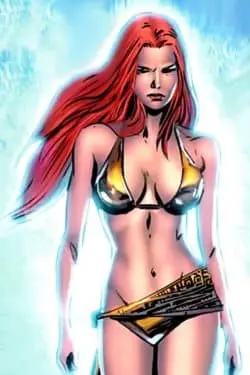
The embodiment of love and beauty from Greek mythology, Aphrodite, finds new life in the Marvel Universe as a deity whose influence transcends the mere aesthetic. Her power to sway the hearts of gods and mortals alike is a potent tool in her divine arsenal, wielded with both grace and strategic acumen.
Aphrodite’s stories within Marvel Comics often highlight the multifaceted nature of love, from its capacity to inspire heroism to its potential to sow discord. Her interactions with other characters, both divine and mortal, delve into the complexities of relationships and the impact of desire on the human condition. Through Aphrodite, Marvel explores the nuances of love and beauty, making her a captivating presence whose influence extends far beyond the superficial.
Odin
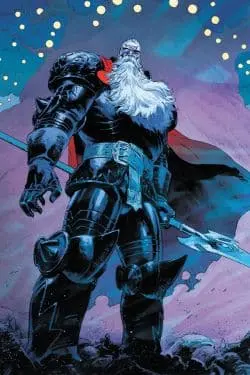
As the patriarch of Asgard and the Norse pantheon in Marvel Comics, Odin, is depicted with a depth befitting his mythological stature. His wisdom, gleaned from countless ages and sacrifices, including the loss of an eye for the sake of knowledge, makes him a formidable figure in the cosmic balance of power.
Odin’s rule is characterized by his dual roles as a warlord and a sage, embodying the complexities of leadership in a realm where might and magic are intertwined. His relationships with his children, especially Thor and Loki, are fraught with tension and affection, illustrating the challenges of divine fatherhood. Odin’s narratives are epic in scope, touching on themes of sacrifice, legacy, and the relentless pursuit of order amidst the chaos of the universe, encapsulating the grandeur and burden of his crown.
Hela
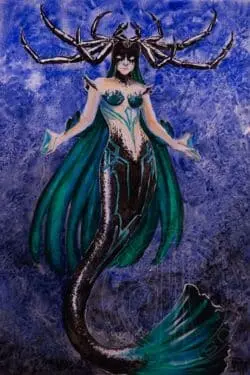
Marvel’s Goddess of Death, Hela, brings a chilling depth to the Norse pantheon, embodying the inevitability and impartiality of death. Her dominion over the deceased souls of Hel and Niflheim is marked by her relentless ambition to extend her power, often putting her at odds with Asgard and its inhabitants.
Hela’s character is a fascinating study in contrasts, combining her regal bearing and commanding presence with a macabre fascination with death. Her battles against Thor, Odin, and other Asgardians are not merely physical confrontations but clashes of ideology, highlighting her unique perspective on death’s place in the cosmic order. Hela’s portrayal adds a dark elegance to the Marvel Universe, showcasing the allure and terror of the afterlife.
Loki
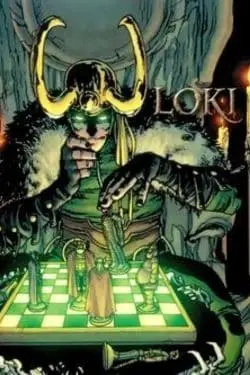
The trickster god of Norse mythology, Loki, is reimagined in Marvel Comics as a figure of immense complexity and charm. His shape-shifting abilities and mastery of magic make him a formidable opponent, capable of bending reality to his whims. Loki’s character arc is a rich tapestry of ambition, desire for acceptance, and a deep-seated rivalry with Thor, painting him as both a villain and, at times, an unlikely ally.
His schemes, ranging from the mischievous to the malevolent, often have far-reaching consequences, challenging heroes and gods alike. Yet, it is Loki’s vulnerability, his quest for identity and purpose beyond the shadow of his brother, that adds layers to his character, making him one of Marvel’s most enduring and compelling figures. Through Loki, Marvel explores the themes of identity, power, and the fine line between heroism and villainy, embodying the complex nature of mythological storytelling in a modern context.
Amatsu-Mikaboshi
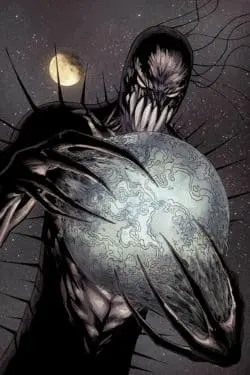
Drawing from the depths of Japanese mythology, Amatsu-Mikaboshi is portrayed in Marvel Comics as the embodiment of darkness and chaos. Known as the Shinto god of evil, this entity predates the universe’s creation, representing the void that existed before the gods brought order. His character is a force of destruction, often clashing with both earthly and celestial beings in his quest to return the universe to its primordial state of chaos.
Mikaboshi’s battles against the likes of Thor and Hercules highlight his immense power and the existential threat he poses. His narrative explores themes of creation and destruction, order and chaos, making him a unique and formidable antagonist within the Marvel Universe. Through Amatsu-Mikaboshi, Marvel delves into the rich tapestry of Japanese mythology, bringing to light the complex interplay between darkness and the forces of creation.
Midgard Serpent
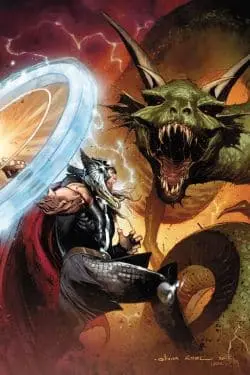
Embarking from Norse mythology, the Midgard Serpent, also known as Jormungand, transcends its legendary origins to become a formidable foe in the Marvel Universe. This colossal beast, destined to fight Thor come Ragnarok, is so massive it encircles the Earth, biting its own tail. In the comics, its appearances are synonymous with cataclysmic events, often heralding the onset of Ragnarok itself.
The Midgard Serpent’s confrontations with Thor and other Asgardian gods are not only physical battles but also engagements laden with prophecy and the inexorable march of fate. Its role in the Marvel comics serves as a testament to the enduring allure of mythological beasts and the narrative power they hold, embodying the inevitable cycle of destruction and rebirth that defines the universe. The Midgard Serpent’s portrayal enriches Marvel’s mythological narrative, bridging ancient lore with the superhero genre in a tale of cosmic significance.
Moon Knight
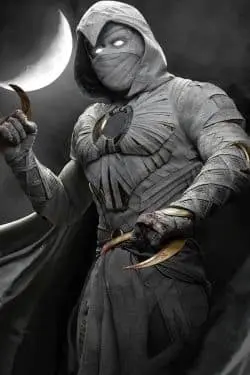
Emerging from the shadows of the Marvel Universe, Moon Knight is a complex hero whose origins are deeply entwined with Egyptian mythology. Marc Spector, a former mercenary, is reborn as the avatar of Khonshu, the Egyptian god of the moon and vengeance, after a near-death experience. This divine intervention grants Spector not only a second chance at life but also imbues him with enhanced strength, endurance, and a connection to lunar cycles.
Moon Knight’s crusade against the criminal underworld is driven by his fractured psyche and the moral ambiguities of his mission. His stories explore themes of justice, redemption, and the struggle with one’s inner demons, set against a backdrop of mythological motifs. Moon Knight’s character is a fascinating blend of superhero and myth, bringing ancient Egyptian mythology to life through the lens of a modern-day vigilante.
Also Read: 15 Best Manga Authors of all Time

